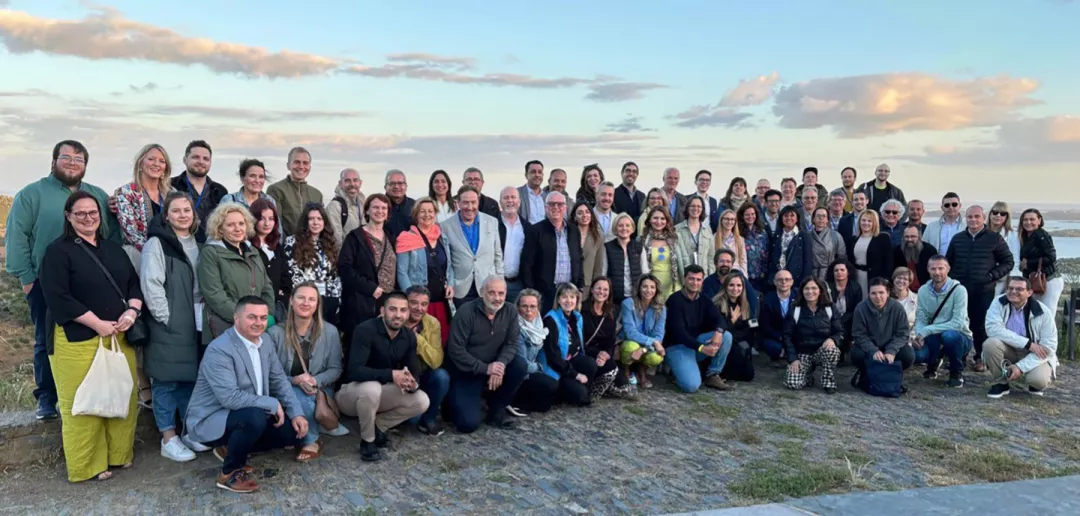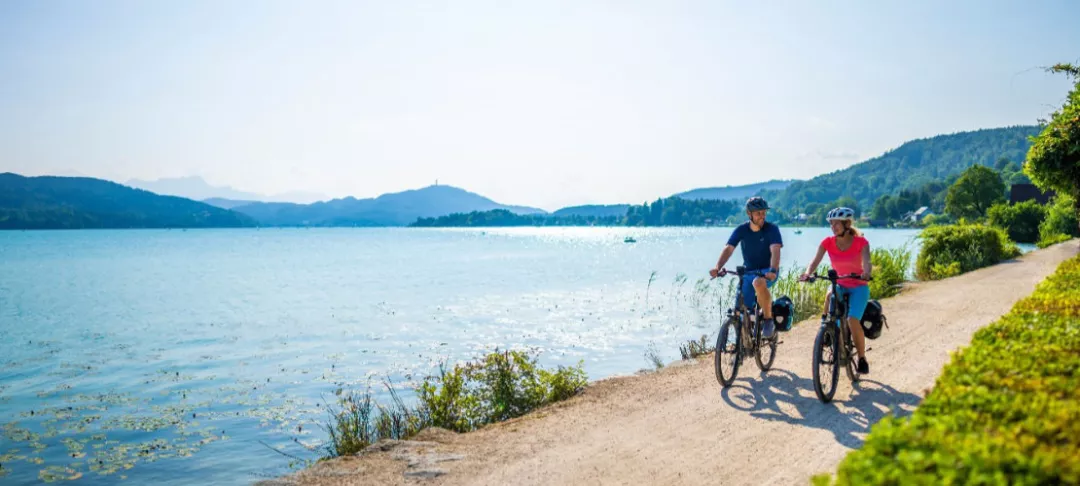The European Rural Mobility Network (ERMN) takes shape
- CAP Implementation
- CAP Strategic Plans
- LEADER
- Long-term Vision for Rural Areas
- Networking
- Rural Development
SMARTA-NET is a ground-breaking initiative aimed at improving rural mobility in Europe. In May 2024, it organised the second conference of the European Rural Mobility Network (ERMN) in Portugal.

Rural mobility is one of the fundamental pillars of the stated European Long-term Vision for Rural Areas – “Stronger, connected, resilient and more prosperous rural areas by 2040”. It is about whether those places can thrive and continue to retain their population, including their families and especially their youth and future generations. Rural areas are active economies, where better mobility can act as an 'enabler' to improve economic, ecological and social outcomes. Rural mobility is a truly cross-cutting issue. It brings together issues of mobility, social opportunity, rural economic development, climate impacts and territorial cohesion, among others.
A wide range of rural mobility solutions (such as demand-responsive transport, carpooling, and car sharing) already exists. These can be packaged to meet local mobility needs and connected to regular public transport. Nevertheless, the implementation context for rural areas is very different from that of urban areas, not only in scale but also in the nature of the implementers, who usually do not have the skills to implement such services. Capacity building, know-how transfer, peer-to-peer networking and exchange of experience can be essential enablers for local shared mobility implementers.

Wörthersee, Kärnten Seenschleife - © Kärnten Werbung_Gert Perauer
As part of the response to these challenges, the SMARTA-NET project is establishing the first European network on rural mobility, aimed initially at rural municipalities and others who can act at the local level.
The SMARTA-NET project— sustainable rural mobility for resilience in support of ecotourism—is led by MemEx of Italy, partnering with TIS (Portugal), E40 (Hungary), NIT (Germany), and Panteia (Netherlands). DG MOVE, in association with DG AGRI, commissioned the project, which is supported by the European Parliament.
Taking place in 2023-24, SMARTA-NET builds on the work in the SMARTA and SMARTA2 projects of 2018-2021. SMARTA-NET has three main strands:
- Establish a European Rural Mobility Network (ERMN) to finally provide a forum and a voice for those working on rural mobility.
- Initially, the ERMN will consist of +70 rural municipalities from 15 EU countries, along with 'multipliers' including LAGs, regional authorities, networks/associations, etc.
- The ERMN has scheduled three events in both 2023 and 2024, one in-person and two online, plus a final conference. This gives ERMN members the opportunity to meet in person three times from now to the end of 2024, share experiences and discuss issues of common interest. The first conference was held in Bingen (Germany) in October 2023 and the second one was held in Evora (Portugal) in May.
- The next ERMN online meeting takes place on 3 July 2024 – registration is open – and the final conference will be held in Brussels on 22-24 October.
- The goal is for the ERMN to have a future beyond the project, to be shaped by the Members themselves during 2024.
- Develop guidelines on a number of topics, including shared mobility good practice, mobility supporting rural tourism, extending SUMPs to incorporate aspects of rural mobility and financing structures for rural mobility. The first two guidance documents (one on good practice and the second on mobility in support of rural tourism) have just been launched on the website.
- Implement training and capacity building on the guidelines in each member country, in their own language, for ERMN members and other interested stakeholders. To date, SMARTA-NET has developed three of the four training modules and training has been launched in the first 13 target countries.
SMARTA-NET works with regions all over Europe, engaging with at least five rural municipalities in each of the 15 countries as ERMN members. They also invite the participation of rural development groups such as LAGs within the network and with associations/federations of municipalities. The online events, guidelines and information are open to everyone.
Project news can be followed through the quarterly newsletters.
One of the core products of the SMARTA-NET project is knowledge, both in terms of products and means of sharing knowledge and building capacity. SMARTA-NET can help bridge knowledge gaps for those who seek to solve rural mobility issues by: i) collaborating with those who are working in the domain; ii) helping those who need guidance and are receptive to receiving it; iii) building sector-specific know-how/capacity in those who have the institutional capacity to act; and iv) opening up new perspectives and partnering (local and international) with those working locally.
SMARTA-NET and the Rural Pact Support Office (RPSO) built a good working relationship over the past year, contributing to each other’s activities. SMARTA-NET participated in the RPSO’s Policy Lab on 'Bringing the Rural Pact closer to citizens' held in Brussels last month. On 20 June, RPSO, in collaboration with SMARTA-NET, organised a Good Practice Webinar on 'Enhancing rural mobility through local action'. The webinar focused on the role that local communities play in enhancing mobility options on their territories and contributing to a fair socioeconomic development of the area. SMARTA-NET recently established a Community Group on rural mobility on the RPSO platform. From July, the SMARTA-NET will actively mobilise it to become an active place for discussions and exchange of experience.
We may also mention the previous SMARTA project at www.ruralsharedmobility.eu . There is a lot of material on the legacy site, including good practice cases, profiles of the framework for rural mobility in each Member State and recordings of two webinar series.
If you want to learn more, a good starting point is to:
- Fill out this survey expressing interest in joining the ERMN network, SMARTA-NET will get back to you shortly!
- Join the Rural Pact Community group on rural mobility.
- Have a look at the video from the ERMN meeting in Bingen.
- Download the SMARTA-NET guidance documents.
For more information, please contact info@smarta-net.eu.